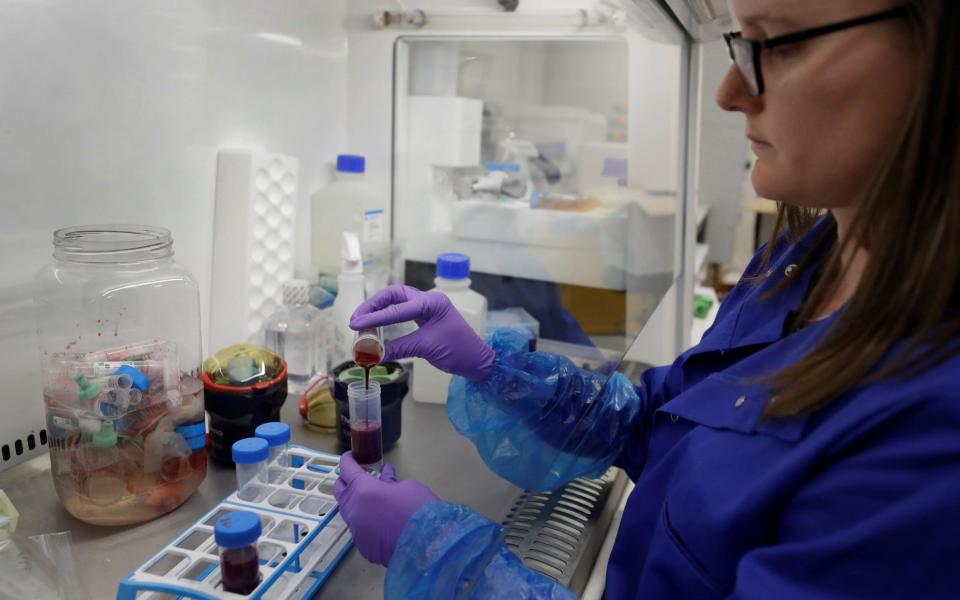Coronavirus research projects on NHS patients fast tracked in 24 hours to deal with 'unprecedented' demand


Coronavirus-related NHS research projects have been fast-tracked by the regulator, with approval times slashed from 60 days to just 24 hours amid an unprecedented number of applications.
More than 350 studies into Covid-19 have been approved by the Health Research Authority (HRA) since mid-March, among them, 52 deemed urgent public health studies, funded by Government, which together have recruited almost 130,000 patients.
While the larger drug trial and treatment studies aim to develop diagnostic tests, treatments and vaccines, others focus on behavioural or observational studies.
They include topics as diverse as the consequences of neonatal infection, the effect of social isolation on Parkinson’s Disease patients and the mental health impact on NHS staff.
Juliet Tizzard, the director of policy at the HRA, said the pandemic had highlighted the crucial role such research played in saving lives.
“Research is often seen as a bit of a sideshow to clinical care done by clever academics,” she said. “I think that what’s been shown here is that research is central to the way that care is provided with Covid-19.”
She said the study sites that had recruited patients most successfully were those where medics had presented the research as “part of the way they were managing the disease”. “That’s how research should be seen at all times but sadly isn’t,” she added.
Ms Tizzard said that all involved, from the financial backers to the volunteers sitting on research and ethics committees, had “thrown everything” at the “unique” situation to get the studies up and running. From providing specialists to shepherd researchers through the process to collating relevant guidance on key issues such as how to approach consent for unconscious patients, the fast-track system has proved a success.
The projects identified as urgent by Chris Whitty, the Chief Medical Officer, have been turned around in 24 hours, while around 60 per cent of Covid-related applications are reviewed in less than 72 hours and the rest within a week.
David Carpenter, the chair of the Berkshire Research Ethics Committee (REC) and a retired philosopher, insisted there had been no relaxation of standards. “We are not cutting corners but know we have got to get these studies reviewed quickly and thoroughly,” he said. “Paradoxically, Covid facilitated it. What else were we going to do during lockdown?”
Mr Carpenter said the research committees were in place to facilitate and promote good research and that virtual meetings had encouraged closer relationships with the academics and researchers.
The fast-track system has proved so successful that the HRA is now looking into whether its model for reviewing research could be adapted permanently Ms Tizzard said she also hoped to harness the level of public engagement for future studies.

